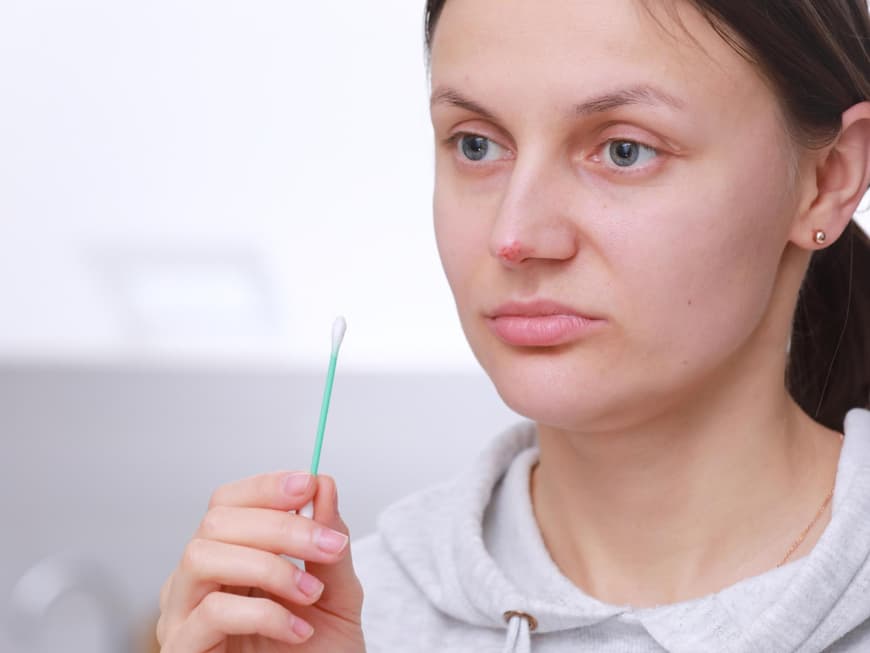
Herpes on the nose: the course
If you are infected with herpes viruses as a child, you will have to deal with them for the rest of your life. You can't get the virus out of your body! As if that wasn't enough: Herpes viruses are dormant viruses and can only become active after decades. There are many reasons for this - a weakened immune system, personal and/or professional stress are two main causes. You also have to be careful in summer, as UV rays encourage an outbreak. Hormone fluctuations can be another reason for an outbreak - sometimes there is no particular cause at all.
Also interesting: Home remedies for cold sores
Symptoms of nasal herpes
Inflammation and blisters on the nose are a sure sign of nasal herpes, which initially manifests itself with itching. As it progresses, herpes on the nose can cause severe pain. During this time, the herpes viruses are highly infectious and can spread to other parts of the face or body! After the blisters have burst, usually after a few days, a crust forms. Healing can take several weeks.
Highly contagious: what can you do about herpes on the nose?
Always go to the doctor, who will prescribe an antiviral ointment. A medication containing acyclovir is also often prescribed in tablet form. The active ingredient is intended to ensure that the viruses do not multiply and to alleviate the healing process.
